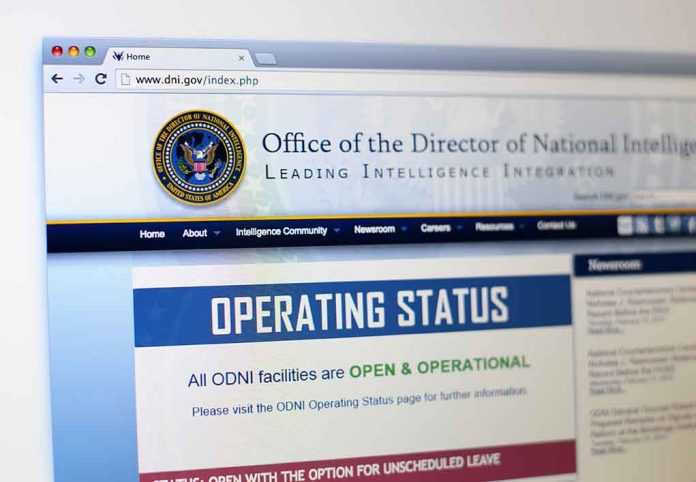
Donald Trump begins controversial intelligence briefings, preparing for national security and foreign policy challenges.
At a Glance
- Donald Trump begins receiving classified intelligence briefings.
- Briefings are critical for the presidential transition process.
- Trump faces scrutiny over handling classified information.
- ODNI briefings continue tradition dating back to 1952.
Intelligence Briefings for Incoming Presidents
Donald Trump, the president-elect, has commenced receiving classified intelligence briefings from the Office of the Director of National Intelligence. These sessions, initiated after the November election, provide an overview of current security threats and international issues. This vital information is key to helping Trump assume control over national security and craft foreign policy plans.
The routine transition briefings, a nationwide tradition since 1952, ensure that a new president is prepared to protect national interests. The ODNI highlights the importance of such briefings as part of a “peaceful and orderly transition” between administrations promised by President Joe Biden. Trump’s transition team has not offered comments on the initiation of these briefings.
President-elect Trump has started receiving intelligence briefingshttps://t.co/QbjEUBOUzt
— MSN (@MSN) November 19, 2024
Challenges and Controversies
Trump’s handling of classified information remains controversial. His retention of classified documents at Mar-a-Lago and past security leaks are under scrutiny. He faces one of four criminal indictments related to lax handling of sensitive data, although that case has been dismissed. Notably, Trump accidentally disclosed classified details about a North Korean missile launch and American spy satellite capabilities. These incidents underscore the complexity of his relationship with the intelligence community.
Over the years, Trump’s relationship with intelligence agencies has been plagued with controversy. From the fake Russian dossier to the Hunter Biden laptop story, Trump’s interactions with the intel community have been nothing but contentious. Despite complexities, the briefings mark a critical step in equipping Trump with essential knowledge as he prepares for renewed responsibility in safeguarding the nation.
Leaders and Future Directions
Trump’s recent appointments of John Ratcliffe as CIA Director and Tulsi Gabbard as Director of National Intelligence have both drawn criticism from the left. Both figures have been outspoken about U.S. involvement in foreign wars and have questioned U.S. intelligence priorities. These appointments underscore Trump’s complex relationship with the intelligence agencies. As the nation awaits Trump’s full transition into office, there are signals of significant shifts in national security and foreign policy strategies.









